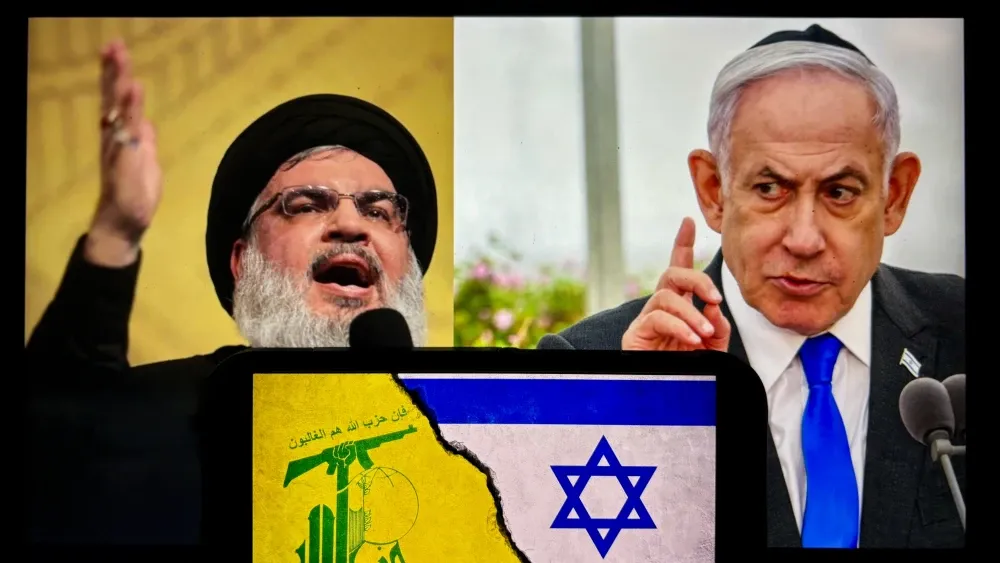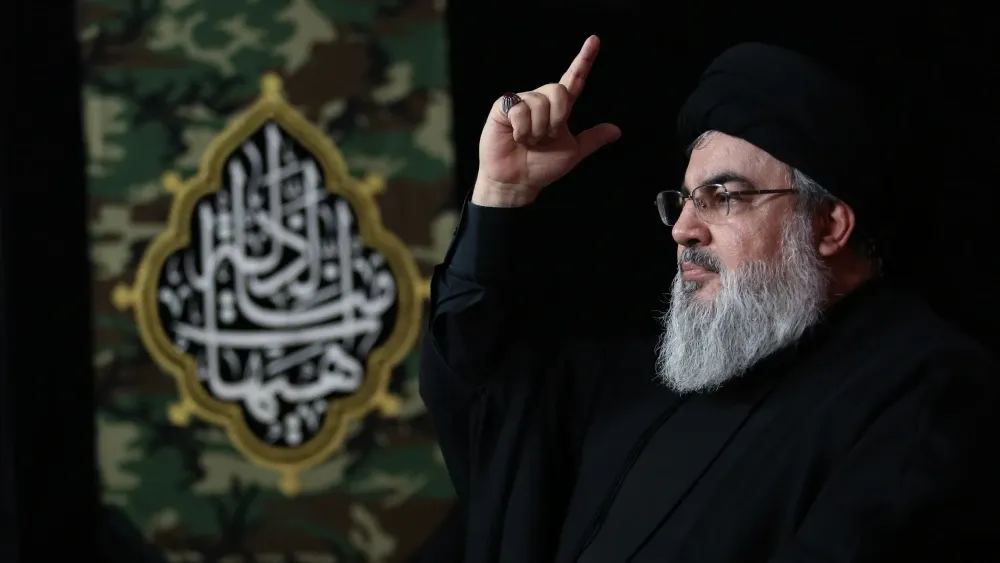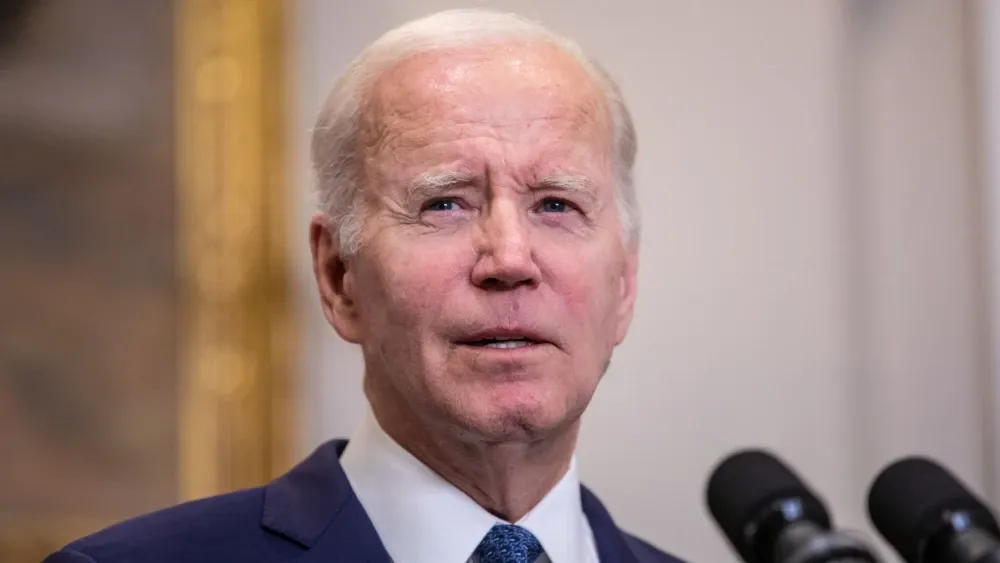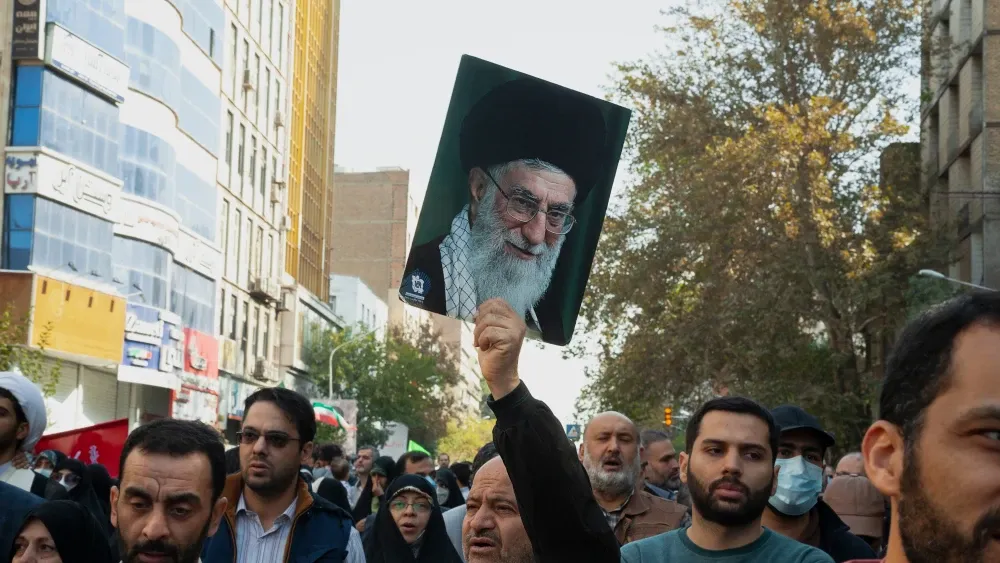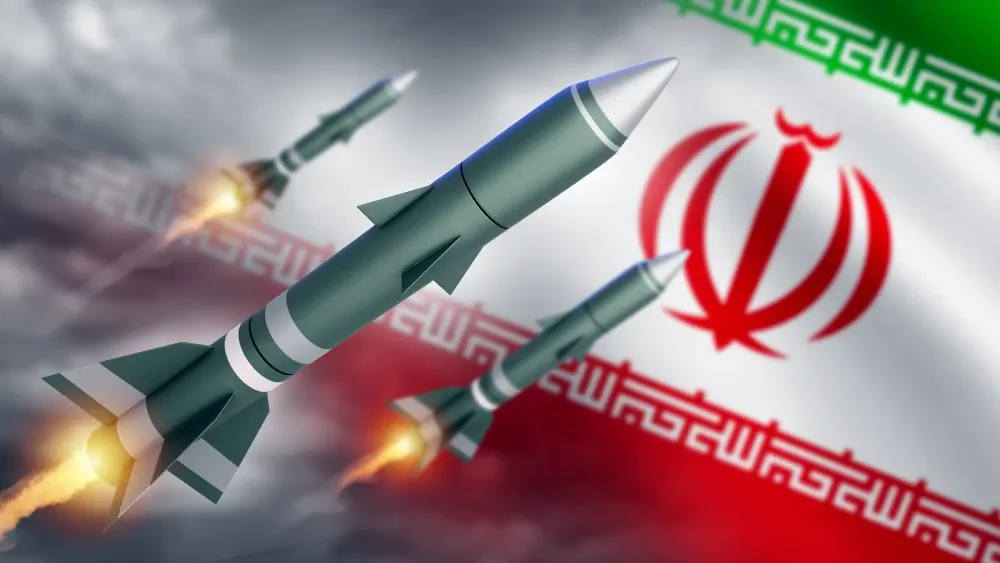| ||
 | ||
| The Future of Israel’s War with Hezbollah and Iran By Ahnaf Kalam ● Oct 03, 2024 Smart Brevity® count: 4 mins...1109 words Israel stands at a critical juncture in its conflict with Hezbollah and Iran. As threats evolve, Israel's defense strategies must adapt. AI-enhanced systems promise to revolutionize border security, with drone swarms and predictive analytics reshaping the battlefield. Recent Israeli actions against Hezbollah and Iran carry significant implications. We examine these developments through three lenses: military strategy, diplomatic relations, and regional power dynamics. The United States' policy approach towards Iran and its impact on Israel's security concerns rounds out our analysis. | ||
To Counter Hezbollah’s Evolving Threat, Israel Needs AI-Augmented Border DefenseHezbollah’s evolving tactics require Israel to bolster its border security with AI-enhanced systems. Why it matters: As Hezbollah continues to pose a significant threat to Israel’s northern border, integrating AI and autonomous systems can enhance the Israel Defense Forces’ (IDF) capabilities and security measures.
The big picture: Hezbollah’s tactics, including a vast rocket arsenal and drone capabilities, require adaptive defenses.
What’s next: Implementing AI systems tailored to Hezbollah’s tactics will require significant investment and specialized training.
| ||
Why Hezbollah Miscalculated – and Israel AttackedIsrael signals a new chapter in its conflict with Hezbollah. The bottom line: The shift in Israel’s policy marks a definitive end to its 18-year stance of restraint on the northern border, opening the door to proactive measures against Hezbollah.
Driving the news: The IDF has commenced raids based on precise intelligence against Hezbollah targets in southern Lebanon.
Potential implications: The scope of Israel’s operations remains unclear, but a broader push into Lebanon is possible.
| ||
Even Israel’s Naysayers Know the Killing of Nasrallah Was Legal and NecessaryIsrael’s targeted killing of Hezbollah leader Hassan Nasrallah garners mixed international reactions. Legal Perspective: Despite some international criticism, Israel’s actions were within international law, focusing on self-defense against imminent threats.
Strategic Measures: Israel employed the principle of proportionality, warning civilians and minimizing harm.
Future Outlook: Continued vigilance and strategic actions are necessary to counter Hezbollah’s threats.
| ||
How Joe Biden May Be Empowering Iran’s Aggression Against IsraelIran’s recent missile attack on Israel prompts questions about U.S. policy and strategy. Strategic Insight: The Biden administration supports Israel, but questions remain about the efficacy of its policies towards Iran.
Policy Missteps: Previous U.S. administrations have misread Iran’s motivations and the Islamic Revolutionary Guard Corps’ influence.
Looking Forward: The U.S. must reassess its approach to Iran, balancing diplomacy with decisive action.
| ||
Israel Likely to Hit Back Hard Against IranIran’s missile barrage on Israel prompts questions about the next steps in the escalating conflict. Current Situation: Iran’s missile attack follows recent patterns, but Israeli defenses have minimized damage.
Military Options: Israel has air superiority and advanced missile capabilities to target Iranian assets.
Strategic Targets: Israel may focus on Iran’s economic vulnerabilities, such as the oil sector.
| ||
Khamenei’s Base May Abandon HimIran’s passivity amid Israel’s actions in Gaza weakens Khamenei’s standing among conservative youth. Current Dynamics: Iran’s lack of response to Israel’s actions has sparked criticism among its conservative base.
Potential Outcomes: Israel’s likely retaliation may deter future Iranian aggression and challenge Khamenei’s rule.
U.S. Role: The United States should anticipate changes in Iran and influence the outcome positively.
| ||
Israel Must End the Islamic Republic of IranIran launches hundreds of missiles at Israel, escalating tensions and prompting calls for decisive action. Bird’s eye view: Iran’s missile attacks are not just a military threat but a strategic challenge to Israel and its allies.
What Israel must do: Israel and its allies should target the Islamic Republic’s military infrastructure without harming Iranian civilians.
Next steps: Diplomatic influence is crucial, with calls for a Marshall Plan to aid Iranians post-regime.
| ||
| The Middle East stands at a crossroads. Israel's adoption of AI-driven defense systems could mark a turning point in its long-standing conflicts with Hezbollah and Iran. As tensions escalate, the international community watches closely. The coming months will likely determine the future of regional stability and the balance of power. Israel's actions, Iran's responses, and U.S. policy decisions will shape the geopolitical landscape for years to come. Stay informed as we continue to analyze these critical developments and their far-reaching implications. Sincerely, | ||
| Feedback Please share your thoughts on this edition. Was this edition useful? Your responses are anonymous | ||
| Powered by | ||
| ||



